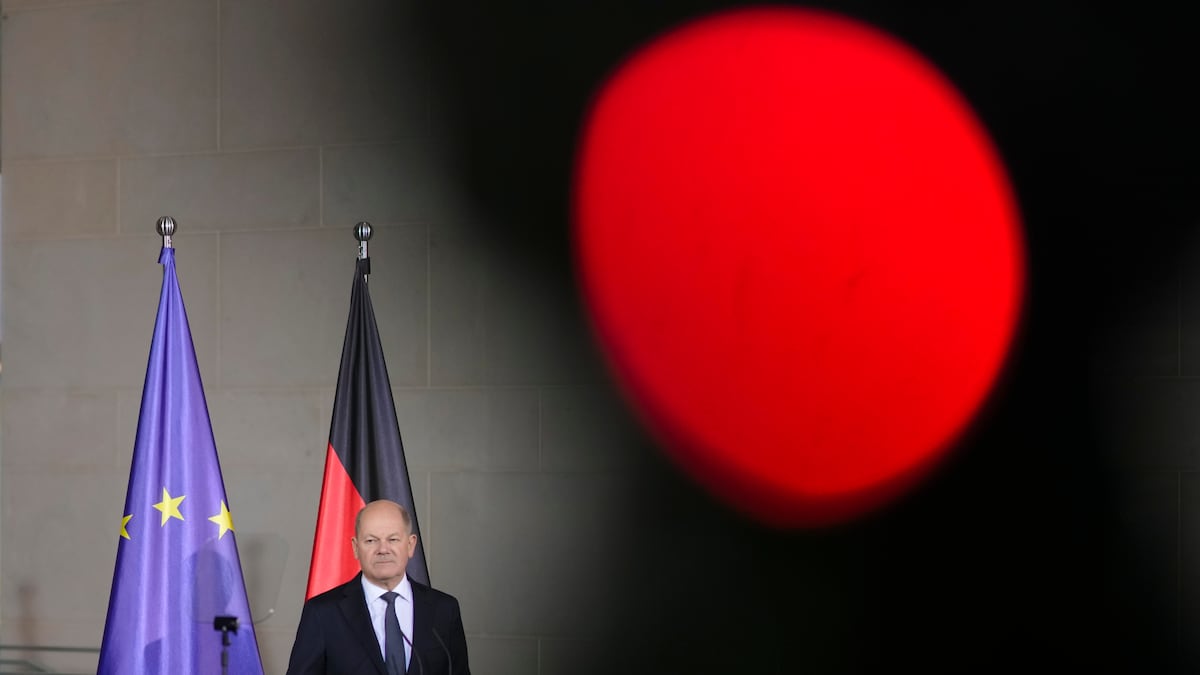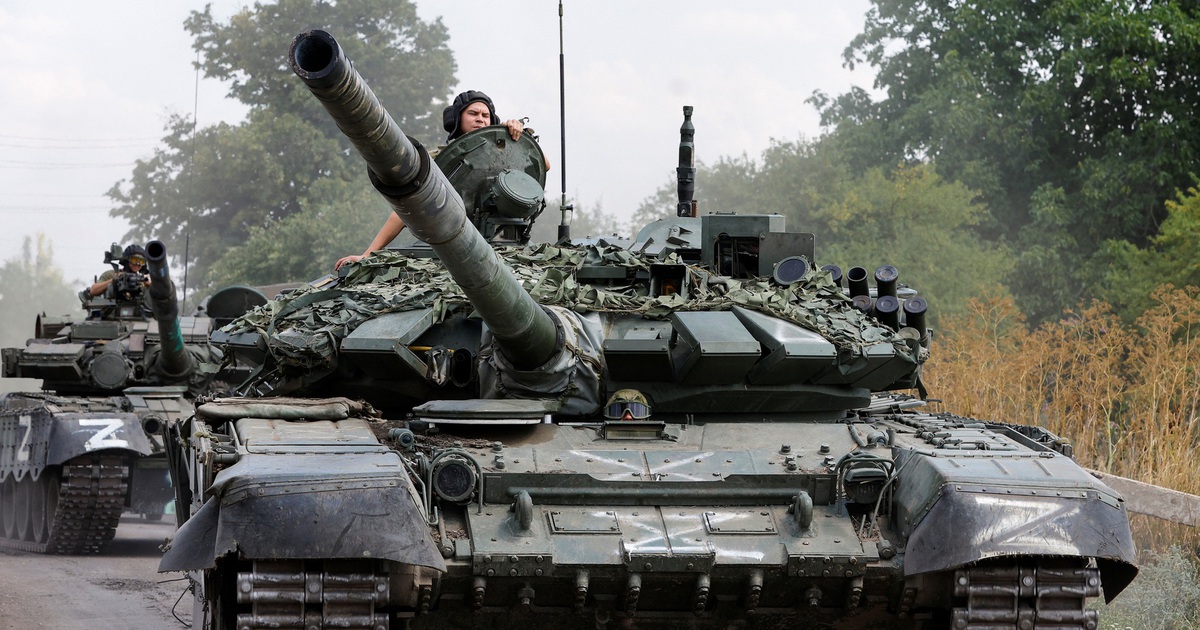Lose to win. The Social Democratic Chancellor Olaf Scholz will submit to a question of confidence this Monday with a defeat that is taken for granted and that he himself seeks. It is the only constitutional way to advance the elections to February 23 after the breakdown of the Government coalition, the necessary procedure to launch a campaign in which the unpopular Scholz wants to refute the adverse polls.
To achieve the miraclethe head of the German Executive waves the flag of “peace” and “prudence” in the face of Russia’s war in Ukraine. And he defends “moderation” in times of economic crisis and polarization and debate about the future of the welfare state. The loss of confidence in the Bundestag must be the first stone for the improbable comeback against the favorite to succeed him: the Christian Democrat Friedrich Merz.
“The vast democratic majority in our country does not want risky adventures, but security and stability,” Scholz proclaimed a few days ago in a speech at the Berlin headquarters of the Social Democratic Party (SPD). The chancellor trusts in his ability to deny the polls. He already achieved it with his victory in 2021 and he thinks, or wants to think, that he will repeat it.
The polls place the Christian Democratic Union-Christian Social Union (CDU-CSU) of Merz as the first force, with more than 30% of the votes, followed by the far-right Alternative for Germany (AfD), which is around 20%, and the SPD, with around 17%. What is significant for the Social Democrats is that, when citizens are asked who they would prefer as chancellor, Scholz or Merz, 43% opt for the former and 45% for the latter. Almost a tie. Two weeks ago the result was 39% to 44%.
No surprises are expected in the vote of confidence in the Bundestag. All 207 SPD deputies should vote in favor of Scholz. Even if the Greens, who govern in a minority with the Social Democrats since the breakup of the coalition with the Liberals, join, they would not reach the majority of 367. The chancellor’s defeat is almost certain; the result, the expected one, and Scholz’s calculation since he dismissed the Finance Minister, the liberal Christian Lindner, on November 6. After the vote, according to the Constitution, the chancellor must ask the President of the Republic, Frank-Walter Steinmeier, to dissolve Parliament within a period of 21 days.
The SPD and the CDU-CSU will present their programs this week. After the Christmas break, extraordinary congresses of both parties will be held in January and the campaign will begin in all its intensity. It will, however, be shorter and faster than the previous ones. And it will coincide both with the change of Government in the United States and with the prolonged period of political uncertainty in France.
For Scholz, according to political scientist Uwe Jun, it is about occupying the center, “and portraying Merz almost as a neoliberal destroyer of the social state and someone who will get Germany into a war.” “This will be the strategy,” the professor from the University of Trier predicts in a telephone conversation. “It will differentiate itself from Merz with a very negative campaign.”
Foreign policy, at a decisive moment in the Ukraine war and with Donald Trump about to reinstall himself in the White House, is rarely central to a campaign. In this country, however, there is a precedent that no one forgets. The then chancellor Gerhard Schröder, also a social democrat, turned the polls around in 2002 by shaking the No to the Iraq war, and this is a position that connects with a deep pacifist current in German society.
Scholz’s position is not so much a No to war like a yes, but. The chancellor reminds on every occasion that Germany is the country in Europe that supports kyiv the most. At the same time, it has set strict limits on this support by refusing to hand over Taurus cruise missiles or allow German weapons to be used to attack the territory of an atomic power like Russia. “For us,” reads the draft SPD program, “neither Germany nor NATO should become belligerent parties.”
The social democrat seeks the middle ground between, on the one hand, the left-wing and extreme-right populists who advocate disengaging from Ukraine, and, on the other, Merz, who defends the sending of the Taurus and whom the chancellor accuses of “playing “Russian roulette.” “Do we continue to support Ukraine firmly and prudently?” the SPD asks rhetorically in its program. “Or do we engage in dangerous adventures in matters of war and peace?”
Deputy Norbert Röttgen, the CDU’s foreign policy leader, sees Scholz’s campaign regarding Ukraine as “a sign of desperation.” He believes that, rather than a point of balance, it raises contradictory positions. “Scholz says two sentences,” he tells Morning Express. “The first is that Germany supports Ukraine militarily like no other European country. The second, that every new weapon or euro we give leads to war. I think there are very few Germans who agree with both statements at the same time.” That is, it will be difficult to find voters who are simultaneously in favor of supporting Ukraine and limiting aid.
“We are all in favor of peace, but the question is how to achieve it,” defends Röttgen. “Our vision, in any case, is that, no matter how important these issues are going to be, there will be other decisive issues.” And he cites the economic and industrial crisis, transport and infrastructure, immigration.
In its electoral program, the CDU will propose tax reductions and a tightening of immigration policy, according to leaked drafts. The SPD, an increase in the minimum wage, the reintroduction of the wealth tax and the reform of the constitutional rule that limits the State’s ability to borrow.
In addition to the 2002 elections, there is another campaign that can serve as a reference for Scholz: that of 2005. Chancellor Schröder started at a disadvantage against the Christian Democrat Angela Merkel, and was about to tie, warning of the conservatives’ threat to the State of well-being. There is another even closer precedent: the 2021 campaign. Scholz, who was outgoing Finance Minister in the grand coalition with Merkel, came back, and now this is his mantra and that of his advisors: if three years ago it was possible, now too .
“But Scholz no longer has the aura of being a successful minister with a popular chancellor.” [Merkel]but that of having been the chancellor in a failed coalition. And this is difficult to correct,” says Jun, from the University of Trier. “They haven’t lost it, but it is clearly more difficult than then.”









